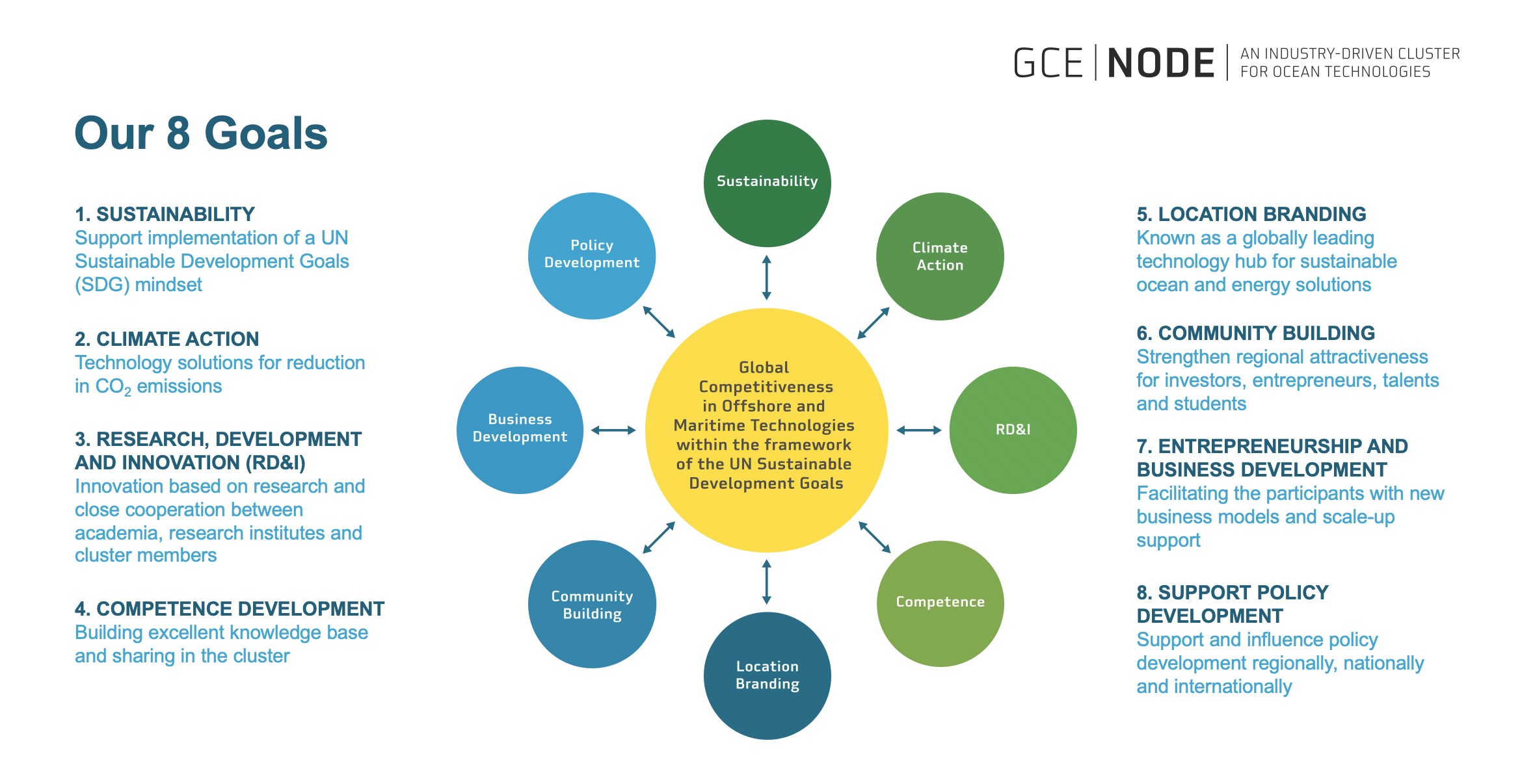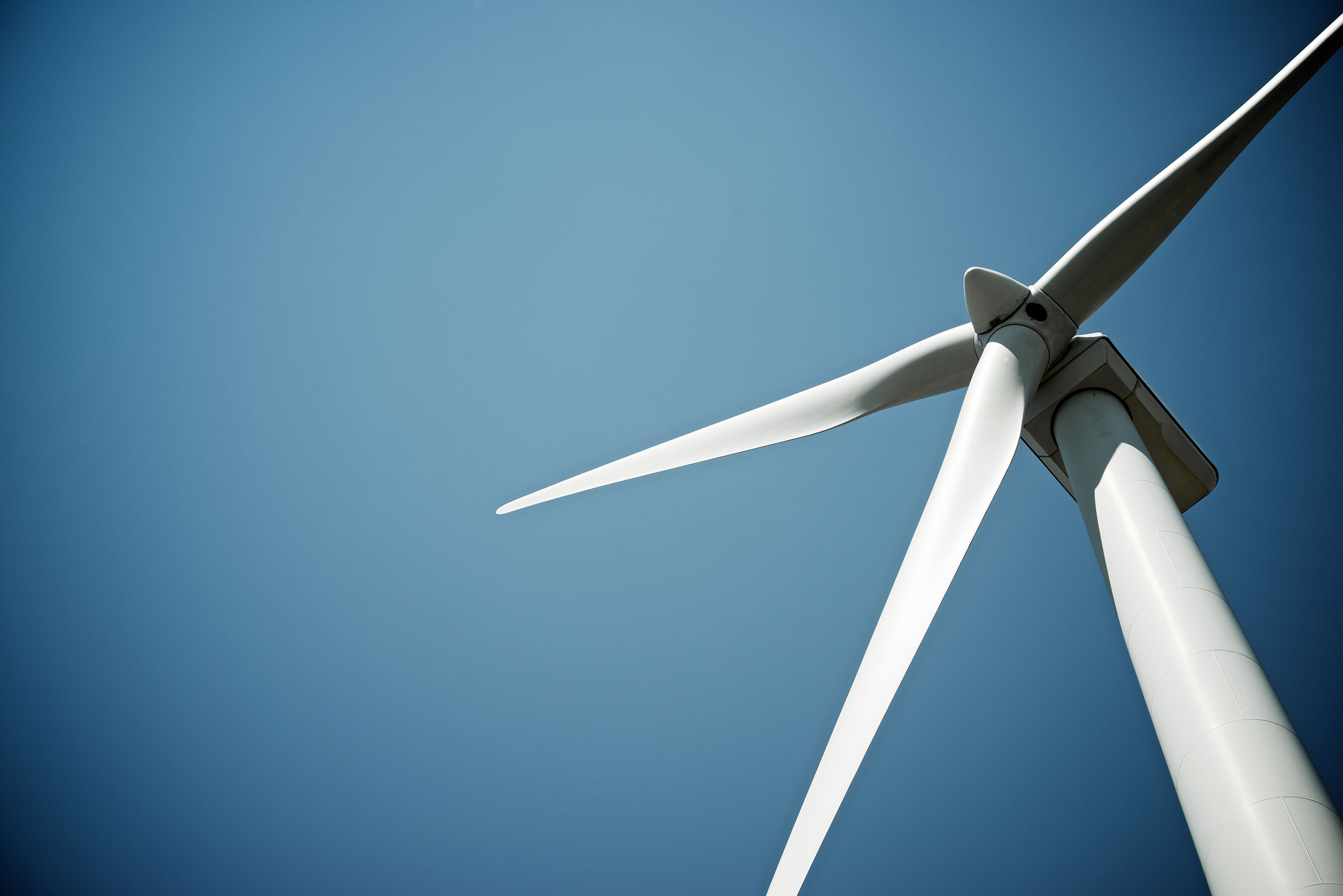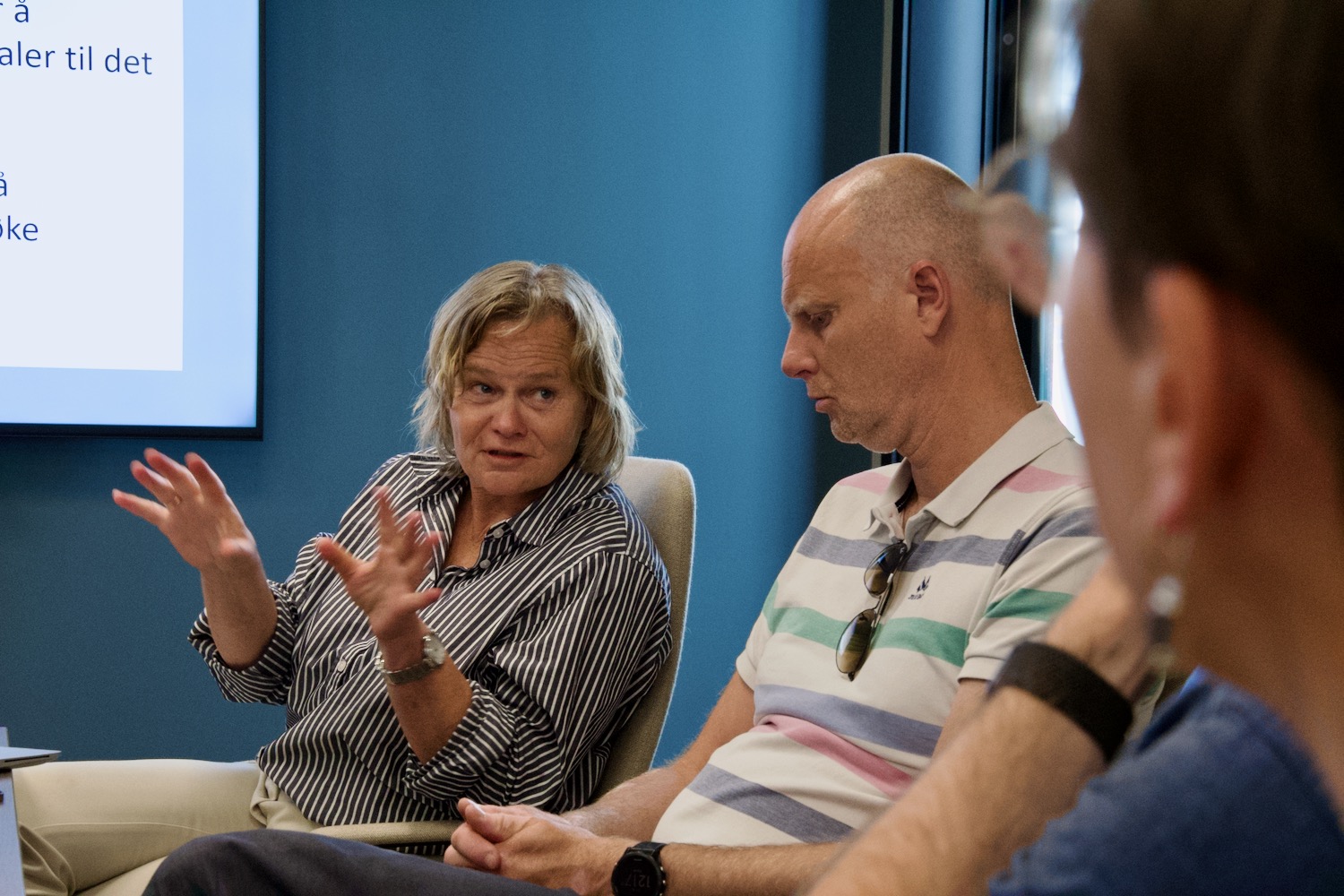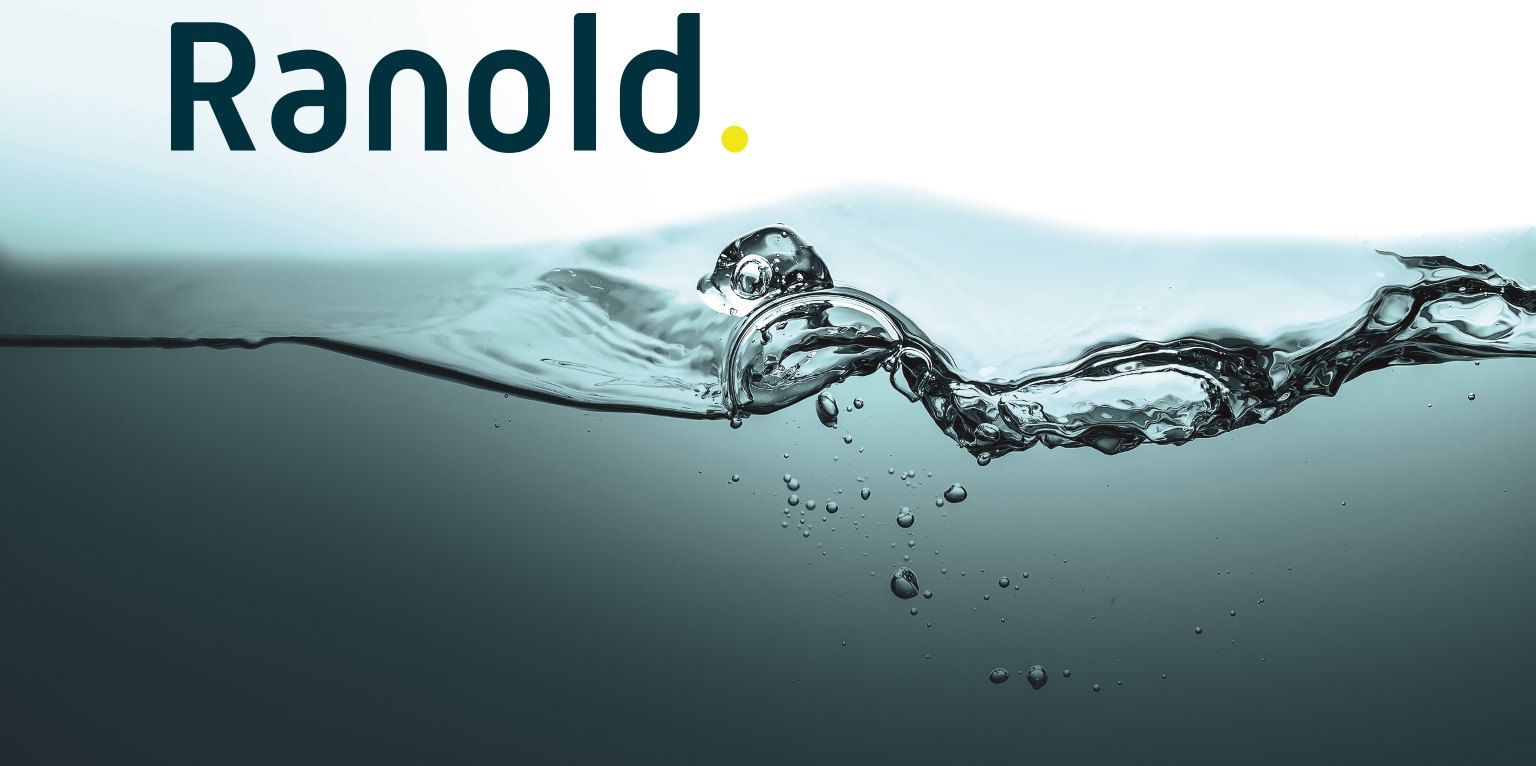Global Center of Expertise NODE (GCE NODE) is a cluster of companies supplying technology, products and services to the global energy and maritime industries. The focus of the cluster is to support and facilitate competence building and RD&I cooperation with regional, national and international partners together with GCE NODE participating companies. The focus of the cluster participants is the ocean industries.
The cluster obtained Arena status in 2005, Norwegian Center of Expertise status (NCE) in 2009 and Global Center of Expertise status (GCE) in 2014. GCE NODE was one of the first two clusters in Europe to achieve Gold Label status in 2012, and our vision is to remain a leading global, sustainable technology cluster.
Continuous and incremental innovations have always enabled the GCE NODE companies to build and defend their position as competitive suppliers to the world market. Their ability to adapt to market changes is key to maintaining their position in current markets, in addition to developing solutions for new and emerging markets. The market situation today has changed dramatically due to the sudden oil price collapse and the Covid-19 pandemic. This has huge consequences for the world economy, business ecosystems, supply chains, methods of working and travel activity. Here too, measures and instruments for the industry are important.
These most recent disruptions also confirm the importance of having a strong strategy for the GCE NODE cluster. The current document describes the cluster’s strategy for the period 2020-2024 (until the end of the Innovation Norway 10-year GCE-funding period).
1: SUSTAINABILITY
Goal: Support implementation of a UN Sustainable Development Goals (SDG) mindset.
Effects:
- Ensured increased awareness of the importance of diversity and equality and how companies with increased diversity perform better
- 80% of the participating companies have incorporated goals from the UN Sustainable Development Goals in their business strategies.
- Launched a Corporate Social Responsibility project including national and global standards and UN Sustainability Development Goals, and supported and facilitated adoption by cluster companies
2: CLIMATE ACTION
Goal: Technology solutions for reduction in CO2 emissions.
Effects:
- Provided competence and tools to address how technology solutions will contribute to reach 40% cut in CO2 emissions by 2030 (ref. Konkraft Report 2020-1: The Energy Industry of Tomorrow on the Norwegian Continental Shelf. Climate Strategy towards 2030 and 2050.)
- Communicated that products and services from the participating companies are part of the solution on how to meet SDG #13
Goal: Innovation based on research and close cooperation between academia, research institutes and cluster companies.
Effects:
- World-class research results disseminated to all relevant companies and partners
- External RD&I funding increased by 30%
- A minimum of 50% of cluster companies have an active innovation strategy
- New technology within new market segments developed by at least 20 cluster companies
Goal: Building excellent knowledge base and sharing in the cluster.
Effects:
- Industry cross-overs and entries into new markets demonstrated by at least 5 cluster companies
- More than 10 cluster companies succeeding in the global energy market and developing solutions beyond oil and gas
- Utilized world-class methodology for sharing knowledge within the cluster
- More than 50% of cluster companies offering continuing education to employees
- More than 50% of all employees participated in continuing education during last five years
Goal: Known as a globally leading technology hub for sustainable ocean and energy solutions.
Effects:
- Attracted new leading companies applying for participation in GCE NODE and increased number of cluster participants by 50% within 2024
- Led and/or participated in workgroups in international industrial networks addressing ocean energy and technology development
- Present at national and international exhibitions and conferences
Goal: Strengthen regional attractiveness for investors, entrepreneurs, talents and students.
Effects:
- Long-term financing from the Norwegian cluster program secured
- Smart specialization strategy with partners enabled (including the EU Digital Innovation Hub, DIH for Ocean Technology)
- Coordinated and built an efficient ecosystem with other clusters, academia, research institutes, incubators, regional and national government and local stakeholders
- Driven and coordinated co-location regionally with relevant stakeholders from academia, industry, investors, clusters and industry associations in relevant locations across the region
Goal: Facilitating the participants with new business models and scale-up support.
Effects:
- More than 80% of cluster companies have an updated strategy and business model
- At least 30% of the cluster companies have successfully provided new services and products to new markets
- SFI PhD project results utilized by a minimum of 15 GCE NODE participating companies
- Scale-up: Supported at least 1 cluster company leading to a substantial turnover growth
- At least 20 new start-ups adopted by the cluster
Goal: Support and influence policy development regionally, nationally and internationally.
Effects:
- Identified and optimized industrial growth in Region Plan Agder 2030 and other relevant regional development plans and operationalized industrial deliverables
- Influenced national conditions for development in Blue Growth, energy, new markets and digitalization by being present in national consultative groups
- Actively contributed to the new EU strategy on cluster development and actively influenced national conditions for cluster development



